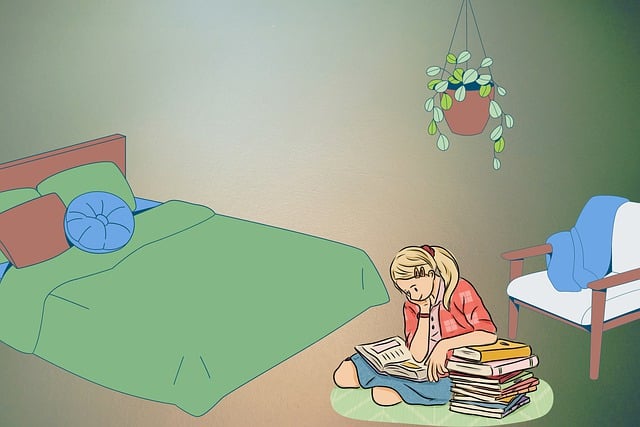Children facing juvenile court proceedings require specialized legal representation due to the unique nature of cases involving delinquency, status offenses, and dependency or neglect. Specialized attorneys are essential to navigate the juvenile court system, ensuring children's rights, interests, and developmental needs are prioritized throughout the process. These experts advocate for rehabilitation and well-being, emphasizing restorative justice and long-term positive outcomes. The legal framework within this system is designed to protect child defendants' privacy and promote their growth, with guardians ad litem and legal clinics offering additional support and representation. Social workers and psychologists are integral to addressing the children's emotional and psychological needs, while family engagement and diversion programs foster a rehabilitative approach over punishment. The juvenile justice system's focus on child-centered advocacy and services underscores the importance of tailored legal support for minors, aiming to secure their future success and well-being within the judicial process.
navigating the complexities of juvenile court proceedings can be daunting for children. This article sheds light on the critical role of legal support in these proceedings, emphasizing the importance of specialized representation tailored to the unique needs of child defendants. We explore the intricacies of juvenile law, advocate for the rights of children within the justice system, and highlight the resources and support systems available to ensure they receive fair treatment. Join us as we delve into the essential aspects of legal support for juveniles in court, with a focus on empowering children through informed advocacy.
- Understanding Juvenile Court Proceedings and the Role of Legal Support for Children
- The Importance of Specialized Legal Representation for Juveniles
- Navigating Legal Challenges: Advocacy and Rights for Child Defendants
- Resources and Support Systems Available to Children in Court Settings
Understanding Juvenile Court Proceedings and the Role of Legal Support for Children

When a child is involved in legal proceedings within the juvenile court system, it is crucial for them to have access to competent legal support. These proceedings, which address matters such as delinquency, status offenses, and dependency or neglect cases, can significantly impact a child’s future. Legal representatives who specialize in juvenile law play a pivotal role in safeguarding the rights and interests of children, ensuring they receive fair treatment and due process. These professionals navigate the complexities of juvenile court rules and procedures, providing guidance to the child and their family throughout the legal journey. The goal is to achieve the most favorable outcome for the child, which may include rehabilitation, counseling, or alternative dispositions that support their well-being and development. Effective legal representation in juvenile court proceedings is not just about representing a case but also about advocating for the best interests of the child, with an emphasis on restorative justice and long-term positive outcomes.
The Importance of Specialized Legal Representation for Juveniles

Children facing legal proceedings within juvenile courts are at a critical juncture that demands specialized legal representation. Unlike adults, juveniles are not fully aware of the complexities of legal processes, making it imperative that they receive counsel tailored to their unique circumstances and developmental stages. Legal representatives with expertise in juvenile law can navigate the intricacies of child-specific statutes and case law, ensuring that the rights of these young individuals are safeguarded. The role of a competent attorney is not merely to defend but also to advocate for the best interests of the child, which often extends beyond the immediate legal issue at hand. This advocacy includes understanding the nuances of a child’s environment and background, which can significantly influence the outcome of court proceedings and their future trajectory. In cases where children are represented by attorneys who are well-versed in juvenile law, the outcomes tend to be more equitable and conducive to the child’s long-term well-being, highlighting the critical importance of specialized legal support for minors within the judicial system.
Navigating Legal Challenges: Advocacy and Rights for Child Defendants

In juvenile court proceedings, the legal landscape for child defendants is distinct from that of adults, tailored to address their unique developmental stages and needs. Advocacy within this system is pivotal, as it ensures children have a voice and are afforded due process. Legal representatives specializing in juvenile law work diligently to protect the rights of these young individuals, navigating complex legal challenges that arise from their cases. The involvement of guardians ad litem or court-appointed advocates can be instrumental in safeguarding the child’s best interests, providing a critical layer of support and representation that is essential for fair proceedings.
The legal framework governing juvenile court proceedings is designed to rehabilitate rather than punish, reflecting societal values of nurturing growth and development in children. Laws mandate confidentiality of proceedings to protect the child’s privacy and prevent stigmatization that could impact their future. Additionally, the courts emphasize restorative justice, aiming to address harm caused by the child’s actions while fostering accountability and learning opportunities. This holistic approach underscores the importance of legal support tailored for children in the juvenile justice system.
Resources and Support Systems Available to Children in Court Settings

In court settings, children face unique challenges that necessitate specialized support systems. The juvenile justice system recognizes the vulnerability of children and provides resources tailored to their developmental stages. These resources include court-appointed advocates, such as guardians ad litem, who represent the child’s best interests, ensuring their voice is heard in proceedings. Furthermore, legal clinics and pro bono services offer free or low-cost representation to children from underprivileged backgrounds, ensuring access to justice regardless of socioeconomic status. The involvement of social workers and psychologists within the court system further supports children by addressing their emotional and psychological needs, which are crucial for their overall well-being and future decision-making.
The role of family engagement is also pivotal in juvenile court proceedings. In many jurisdictions, efforts are made to include parents or guardians in the process, fostering an environment where the child’s support network can actively participate in decisions affecting their life. Additionally, diversion programs and rehabilitative sentencing alternatives focus on restorative practices rather than punitive measures, aiming to reintegrate children into society with a focus on learning from their actions rather than merely being penalized for them. These holistic approaches aim to provide comprehensive support to children navigating the complexities of the legal system.
Children facing court proceedings require nuanced legal support tailored to their unique circumstances. This article has elucidated the significance of specialized legal representation for juveniles, emphasizing the resources and advocacy available to them within the justice system. The role of legal guardians in supporting child defendants is pivotal, ensuring they navigate these challenges with fairness and dignity. Accessing appropriate legal support is crucial for children to effectively present their cases and understand their rights. By leveraging the multitude of resources and support systems designed for them, children can better maneuver the complexities of court proceedings, thereby safeguarding their well-being and future prospects. It is incumbent upon legal professionals, child welfare agencies, and the judiciary to uphold the best interests of these young individuals through informed, compassionate, and effective legal representation.
